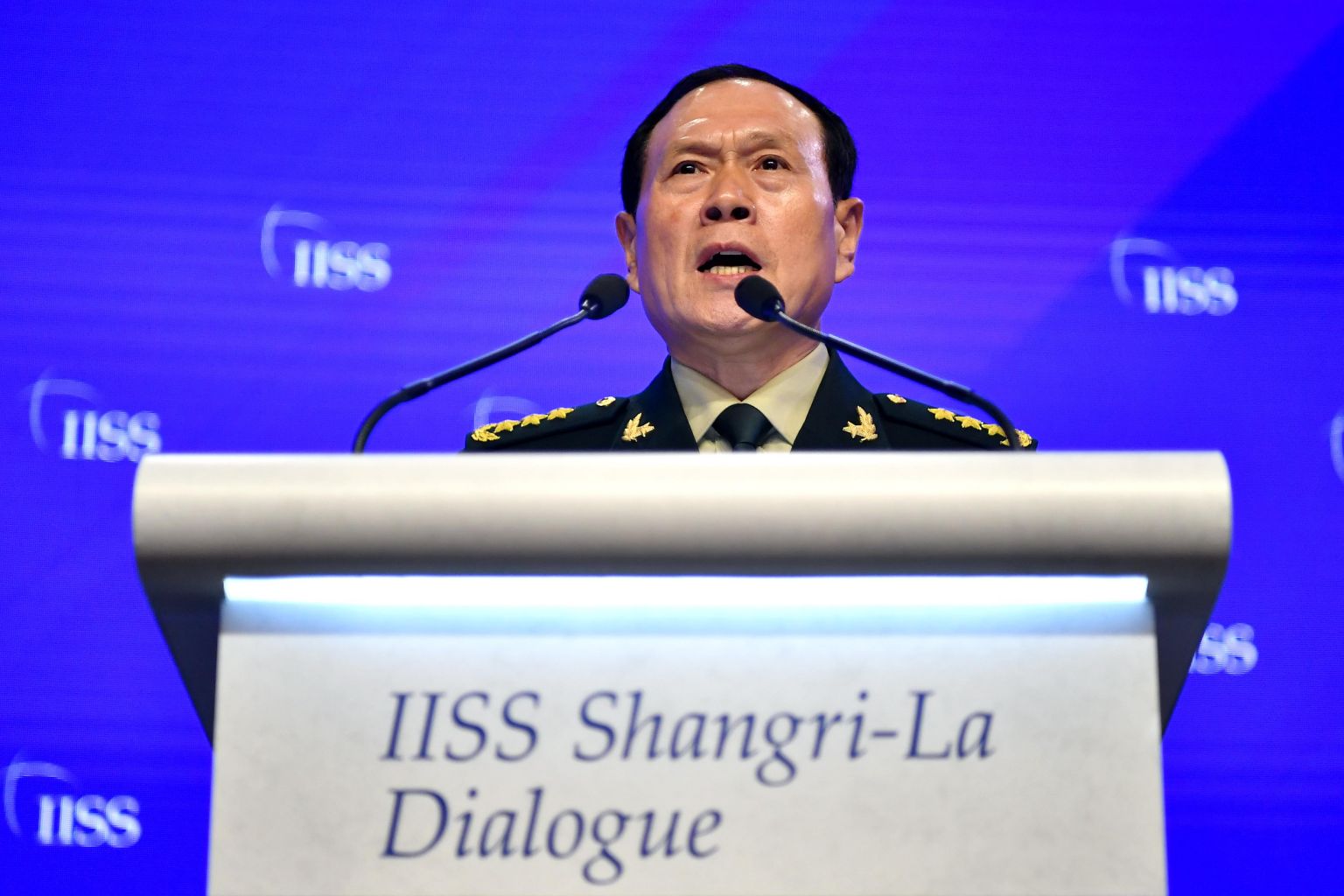Shangri-La Dialogue: China sees need to explain its position
Sign up now: Get ST's newsletters delivered to your inbox

ST PHOTO: LIM YAOHUI
SINGAPORE - For the first time in eight years, China sent its Defence Minister to the Shangri-La Dialogue, a forum the United States has used to articulate its security policy for the region.
Since 2011, China has sent only low-level officials to the security summit. For the Chinese, coming to a forum dominated by the US and its allies meant being criticised for their actions in the region, such as in the South China Sea.
Last year's delegation leader, Lieutenant-General He Lei, did not even speak at a plenary session, but only at one of the simultaneous special sessions.
All that changed this year.
Beijing sent Defence Minister Wei Fenghe, who had a plenary session all to himself on the third day, just as Acting US Defence Secretary Patrick Shanahan had on the second day.
The delegation was also China's largest ever, with more than 70 personnel, including several experts from the military and its affiliated think-tanks and schools.
Why the change of heart?
As ties with the US have deteriorated and the rivalry between the two sides has intensified in the region, China cannot afford to be absent from a summit used by the US to lay out its policies and potentially influence regional leaders.
"They are worried that if China doesn't come out and make a statement and explain China's position, perhaps some countries will be influenced by the US vision of Indo-Pacific, they will probably become more subscribed to American ideas and policies," said Associate Professor Li Mingjiang of the S. Rajaratnam School of International Studies.
In his session, Mr Shanahan had expounded on the US' Free and Open Indo-Pacific Strategy, which seeks to build a network stretching from the west coast of the US mainland to India, to meet regional challenges, including that of a rising China.
General Wei, for his part, delivered a clear speech laying out China's security policy and position on various security issues including Taiwan, the South China Sea and North Korea. He also suggested an alternative regional order based on the Chinese ideal of a shared future for mankind.
He rebutted Mr Shanahan's criticisms of China, including on the issue of island-building in the South China Sea, contending it was China's right to do so on its own territory for its own defence.
He also lambasted US policies that he said have led to security problems of destabilisation in the region, including its freedom of navigation operations.
Gen Wei did not shy away from sensitive questions such as the incarceration of more than a million ethnic Uighurs in detention camps and the June 4 Tiananmen Square crackdown of pro-democracy protesters 30 years ago.
Prof Li thought Gen Wei impressed the audience by not dodging these and other questions, but instead trying to explain the official positions.
His answers may not have satisfied critics, for instance on China's claim of sovereignty in the disputed South China Sea. Senior research fellow at Cambridge University Lynn Kuok noted that it occupies a reef that an international tribunal found belonged to the Philippines.

Over the last two days, China and the US put forth their own positions, but there is no real sense that either side had reached out to the other.
As veteran Singaporean diplomat Ong Keng Yong said, there is no climb-down on either side from their respective stands.
Still, that the Chinese defence minister came as he did is a positive step, especially if it leads to further dialogue between the two sides.


